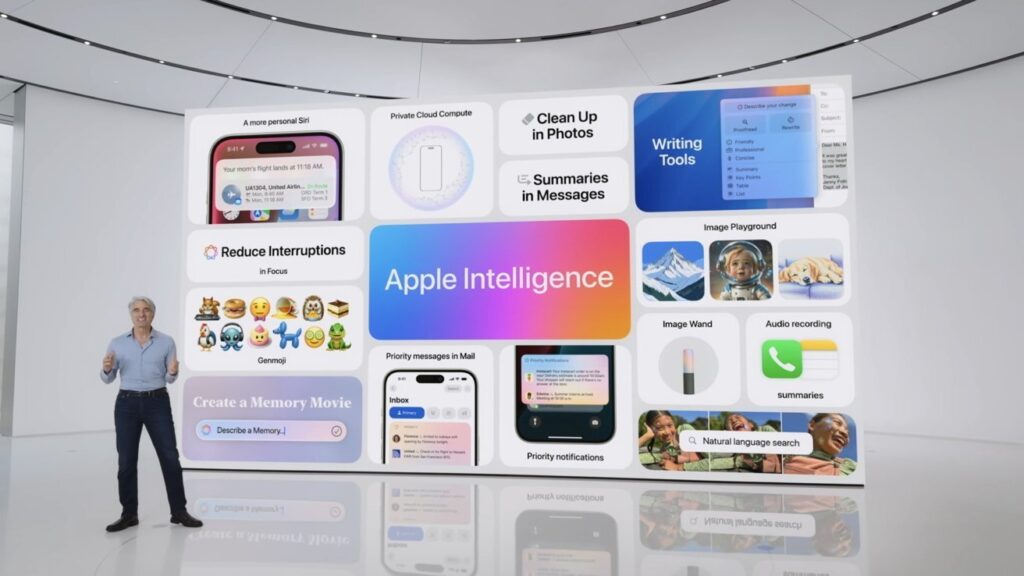Apple is charting an ambitious course to reclaim its position in the artificial intelligence arena, as critics claim the tech giant currently trails behind its competitors in the AI race. However, Apple is optimistic that its advancements in chip technology and device enhancements by 2025 will see a significant leap in its AI capabilities.
At the heart of Apple’s AI evolution is “Apple Intelligence,” a feature poised to make its debut across the company’s latest devices. Scheduled to be unveiled gradually through software updates, users will begin experiencing its capabilities as soon as iOS 18.1 is released, which is anticipated by the end of October. Among the most notable enhancements is a revamped Siri, designed to deliver a more robust user experience.
Despite these advancements, insiders report concerns about Apple’s position relative to competitors. A recent Bloomberg newsletter highlighted internal sentiments that Apple is notably behind in AI development, with rivals like ChatGPT exhibiting a 25 percent higher accuracy rate in responding to queries and a 30 percent broader scope of questions than the current iteration of Siri.
In response to these challenges, Apple is concentrating on integrating features that enhance user convenience. This includes timely notifications, concise summaries of emails and messages, and a collaboration with ChatGPT for more complex inquiries. Looking further ahead, Apple plans to roll out an evolved version of Siri, alongside cutting-edge features such as generative emoji creation and an innovative Image Playground, beginning in early 2025.
While competitors like Google are already offering advanced AI functionalities such as email summarization, Apple has chosen to emphasize the privacy and security of its AI. The company’s strategy involves processing tasks directly on the device whenever possible, minimizing the need for external data interventions. This approach ensures that users are informed whenever external resources are accessed and clarifies what, if any, personal data is shared.
The resource-intensive nature of AI means Apple is setting stringent hardware requirements for future AI integrations. Only devices equipped with the iPhone 15 Pro, Pro Max, or later, featuring at least an A17 or M1 chipset and 8GB of RAM, will support Apple Intelligence.
As Apple embarks on reducing the technological gap with its competitors over the next couple of years, the company is ramping up efforts by hiring additional engineers and acquiring firms with groundbreaking technologies. This intensive focus on Apple Intelligence development is set to increase significantly.
In parallel with AI development, Apple is also preparing its hardware to support these sophisticated services. The upcoming iPhone SE is expected to incorporate an A18 chip with 8GB of RAM, and similar upgrades are anticipated for the entry-level iPad by 2025, ensuring Apple stays competitive in an ever-evolving tech landscape.


